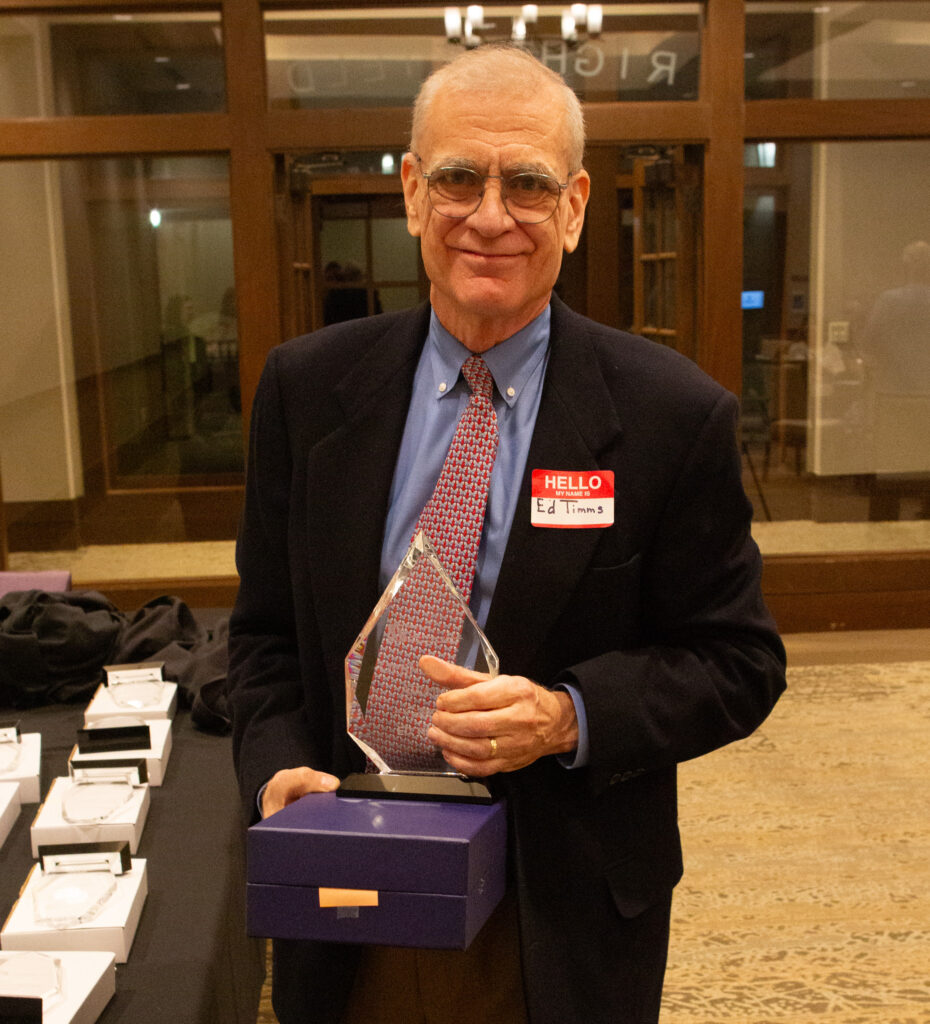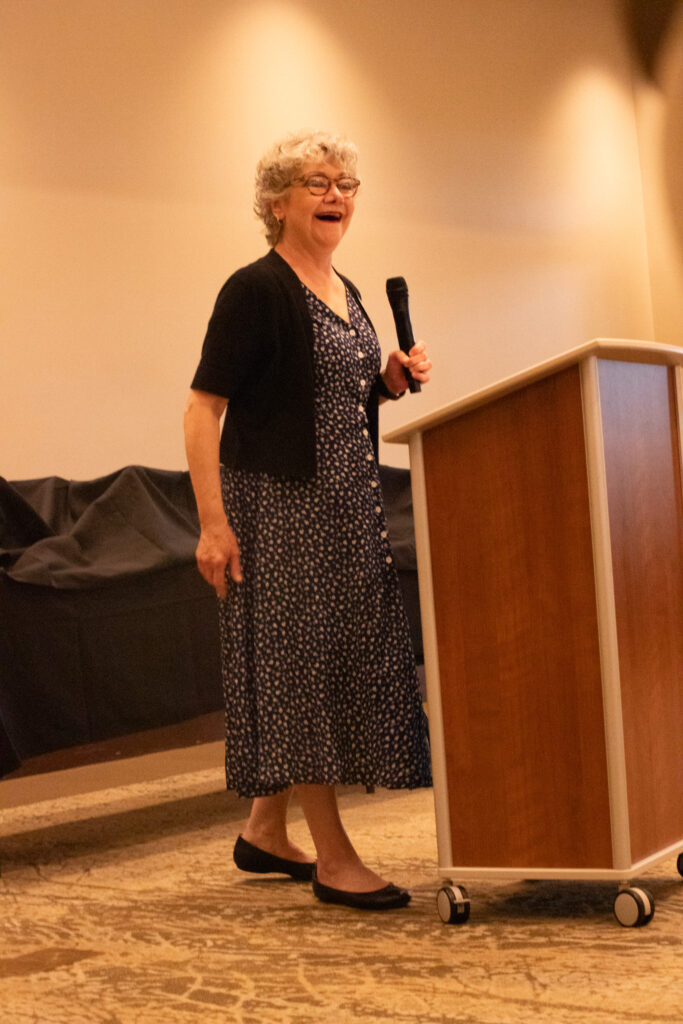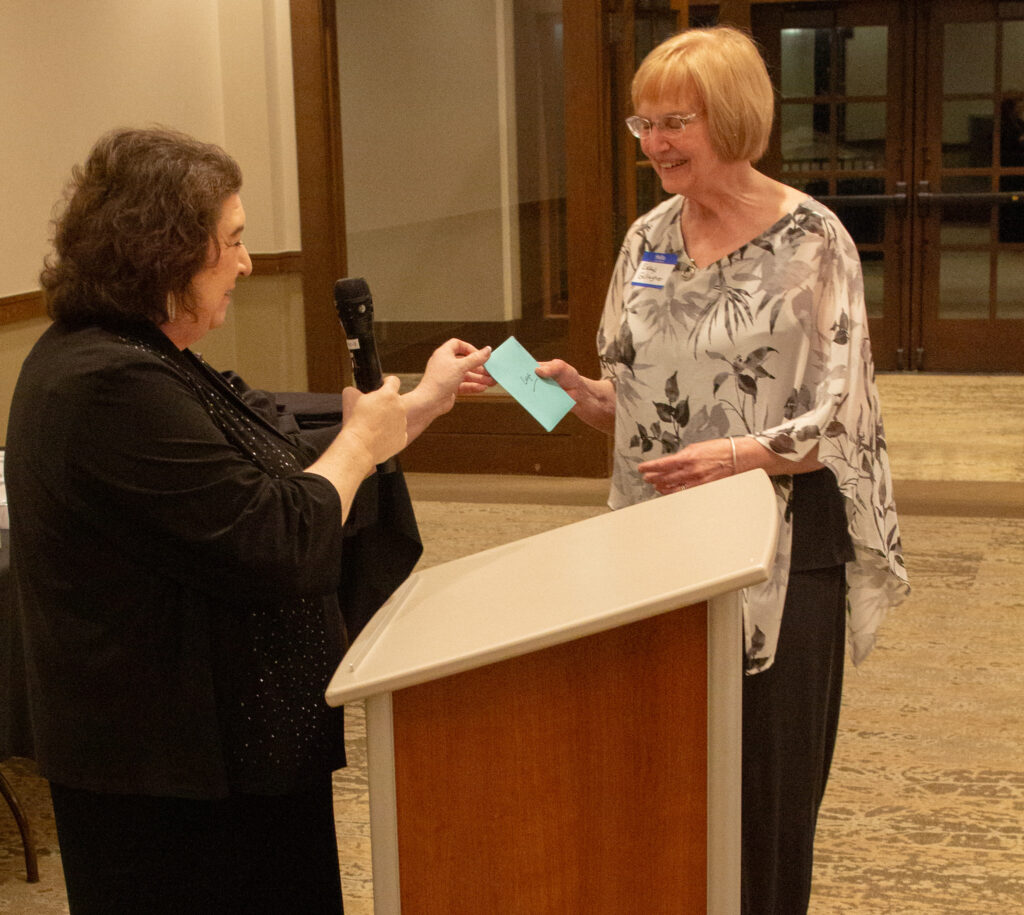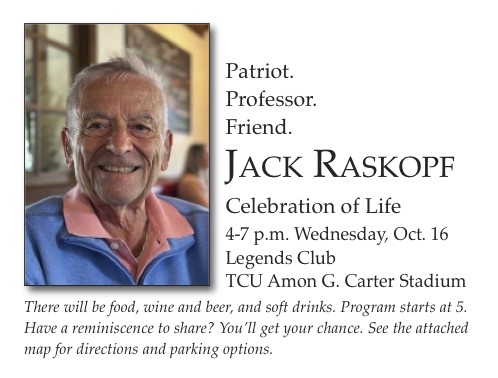About 90 people enjoyed our 22nd Annual First Amendment Awards and Scholarship Banquet Friday, March 28. We gave $17,000 in scholarships to promising media students and 20 awards to excellent journalists for their work in defending the First Amendment. For more photos, visit https://photos.app.goo.gl/PzDg2vezcH8Eqyi46
We celebrated good journalists’ work, and we honored them with 19 First Place awards. We celebrated journalist, Ed Timms, of KERA, with the Open Doors Award–our Lifetime Achievement award, for his great work over several years. Congratulations, Ed!

Christi Harlan, our guest speaker, told about her experiences with writing two books about former President Jimmy Carter–much of her information came from members and archives of First Baptist Church of Washington, D.C., where he taught Sunday School while he was president. Her books can be bought on Amazon. Thank you for sharing your incredible career with us!

Another highlight of the night was honoring our outgoing SPJ-FW board president. Eddye Gallagher has been an extraordinary SPJ member for many years. She has served as our Regional Director as well as our chapter president for the past 5 years. Congratulations, Eddye!








